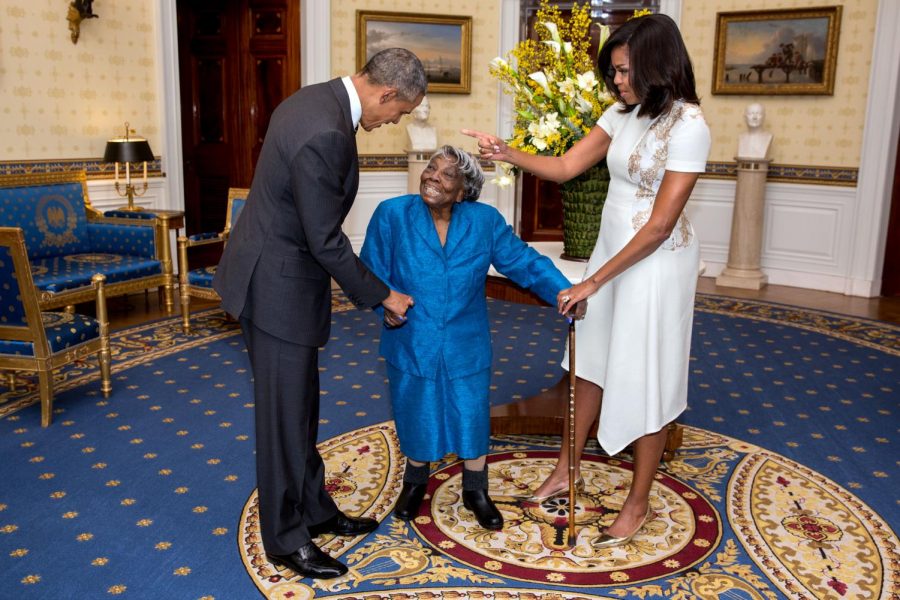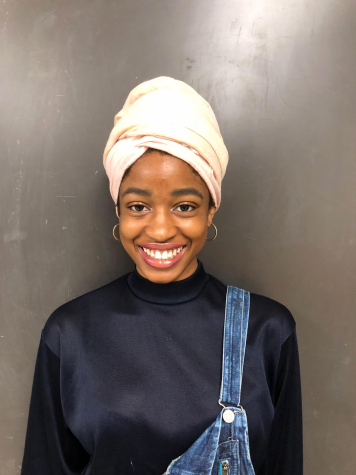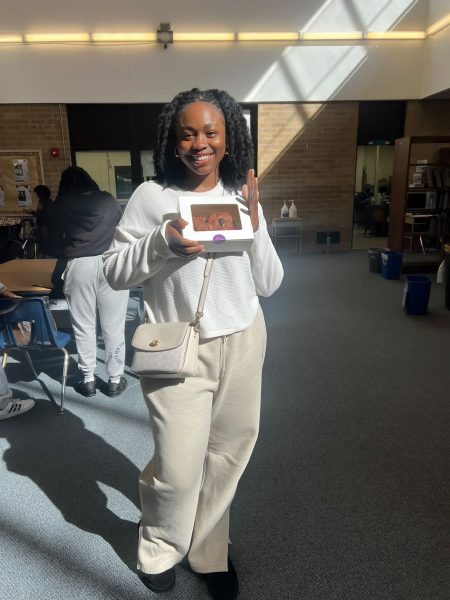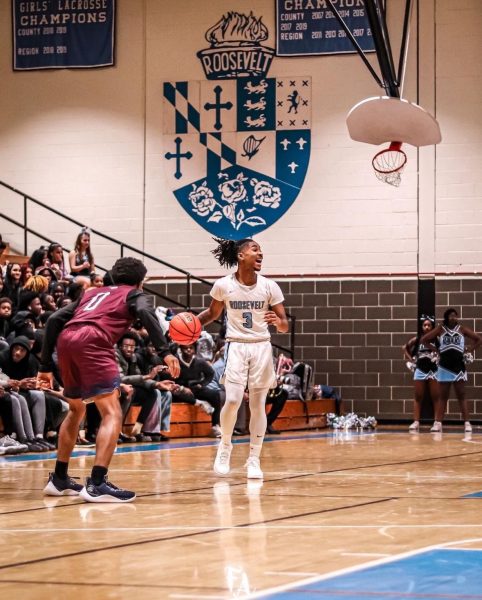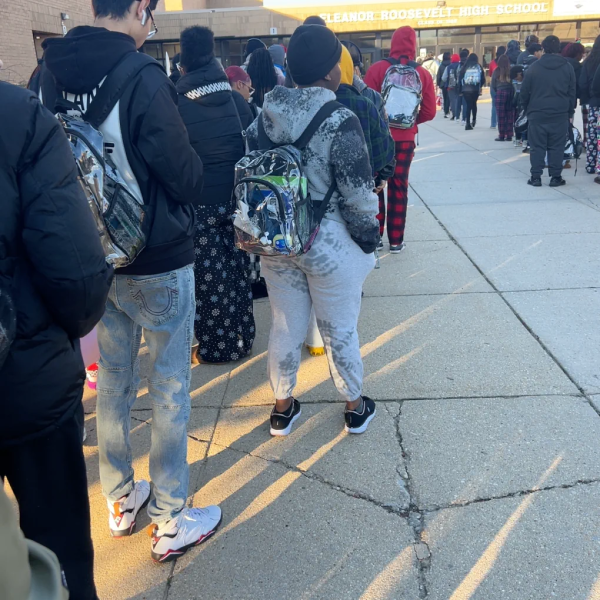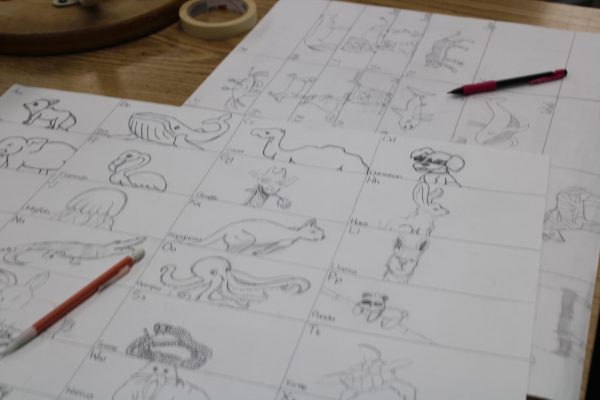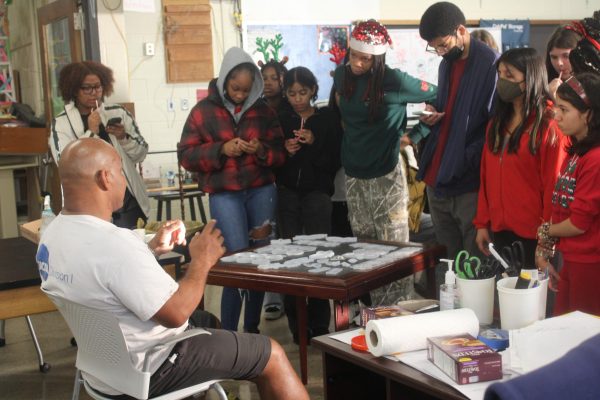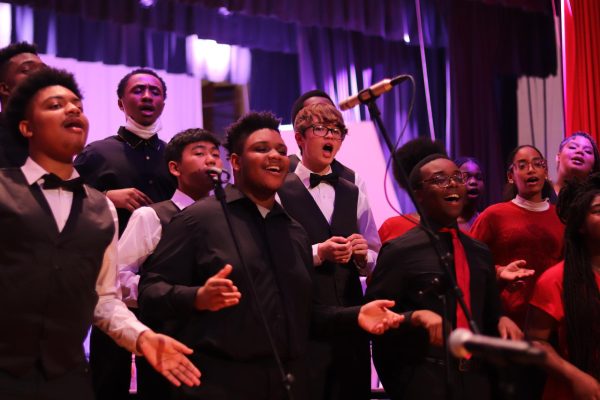Black History Month: Back to Black and More
February 16, 2019
February marked the start of Black History Month. For ERHS, that means the “Back to Black” showcase, which will be held later this month, and has already sparked discussions about black student empowerment and unpacking white privilege.
The annual Black History Month showcase, this year titled “Back to Black,” was no easy feat to plan—hours of practice have already been dedicated to this event in the name of black excellence and celebration of a variety of black youth talent.
Black Student Union leaders, Olivia Zama, and Aiden Benyarku hosted the event, highlighting the significance of sharing talent around the ERHS community.
Prior to the event, they encouraged all “singers, rappers, dancers, poets, fashion designers, and artists” from all backgrounds to come out and express their art form in honor of Black History Month, adding that others were “free to come and help [them] plan as well,” even if they did not plan to perform. The idea is about bringing the community together in unity. Another showcase from previous years, titled “The Awakening” and hosted by alumna Inaya Andrews gave further insight into the significance of the Black History Month showcase tradition at Eleanor Roosevelt.
In light of Roosevelt’s annual Black History Month showcase hosted by the Black Student Union, students of the community shared what they hope to see this new year as far as black accomplishment and celebration goes and the meaning of Black History Month.
Senior and African Student Union member, Chioma Ezuma, who is planning to attend the showcase enjoys celebrating Roosevelt’s tradition through photography and dance. She shared that Black History Month is “a month to remember the accomplishments of Black people, a month to embrace Black culture, [and] a month to proudly wear your skin.” It’s important to showcase the new generation of black excellence, Ezuma said.
The significance of Black History Month primarily lies in giving homage to not only black role models that led marches, activism, and movements, but also to the ordinary, black individuals who are not so ordinary. It is about being progressive, connecting, and understanding ourselves more. Senior Annette Mourkoury emphasized these thoughts, relating that Black History Month holds meaning for her as “a time of reflection and admiration for the past members of the black community that have paved the way to ensure a bright future for the black community.”
In previous years, lasting trends such as the “Black Girl Magic” and “Black Excellence Movements.” In the new year, Senior Annette Moukoury shared that she hopes to see “more black art and black movies,” and “definitely more diversity in the modeling and beauty industry.”
It isn’t wishful thinking to demand more and demand representation. 2018 saw Pat McGrath accoladed as first black, self-made makeup artist and beauty billionaire; the Coachella Valley Music and Arts Festival culturally and musically shut down by black women like Beyoncé; the highly influential September issue of Vogue shot by Tyler Mitchell—the first and youngest African-American photographer to cover Vogue in all of its 126-year history; the astounding release of Black Panther; the headlining of several black politicians during 2018 gubernatorial elections and the list goes on and on. However, the list is still not complete and still too short.
Annette Moukoury expressed that although Black Panther was nice, she “[does] not think [she has] been represented enough.” Although, it has been a big step for minority representation, more recognition beyond the box office, especially regarding women’s rights is what we need, Annette Moukoury shared.
Black History Month is also about recognizing struggles such as the wealth gap disparity and openly talking about it. In February of 2018, Viola Davis explored her long-lasting friendship with Meryl Streep and the pay gap in Hollywood for women of color, black women especially. After her speech at the Women in the World Los Angeles Salon, Davis strikingly demanded in a statement to CNN: “If there’s no one like me. You pay me what I’m worth,” in reference to Hollywood’s pay gap and comparisons to Streep as the “Black Meryl Streep.” Senior Marie Mourkoury expressed feelings of offense. “It’s understandable that black women are demanding more respect and equity in comparison to their white counterparts—white audiences want white celebrities who dapple in distinct aspects of black culture but not black artists themselves,” she said. She continued, “Black women deserve what they’re worth.”
Students within the ERHS community shared what they think of similar struggles. In Frederick Douglass’ famous speech, “In What to the Slave is the Fourth of July” (1852), Douglass remarked to white America: “The Fourth of July is yours, not mine. You may rejoice, I must mourn.”
On one side, Annette Moukoury supplied that “blacks were not freed when [white America] was freed,” when the rest of the country was freed. In another light, Ezuma expressed that “although white America was free from Britain’s oppression, Black Americans were still enslaved and oppressed. They could not celebrate their freedom until 1865 when slavery ended and even then they were legally segregated for another 100 years. The Fourth of July is a only a happy celebration for white America.”
Douglass’ speech is a reminder of why Black History Month exists. African-Americans and Black Americans will no longer settle for less nor forget the roots that are ingrained in them. Black History Month is for celebrating and acknowledging success, growth, hope, black power, and freedom of expression which Eleanor Roosevelt’s showcase represents.
Ezuma hopes that in 2019, she will see more “black people standing up for each other and building each other up.”


